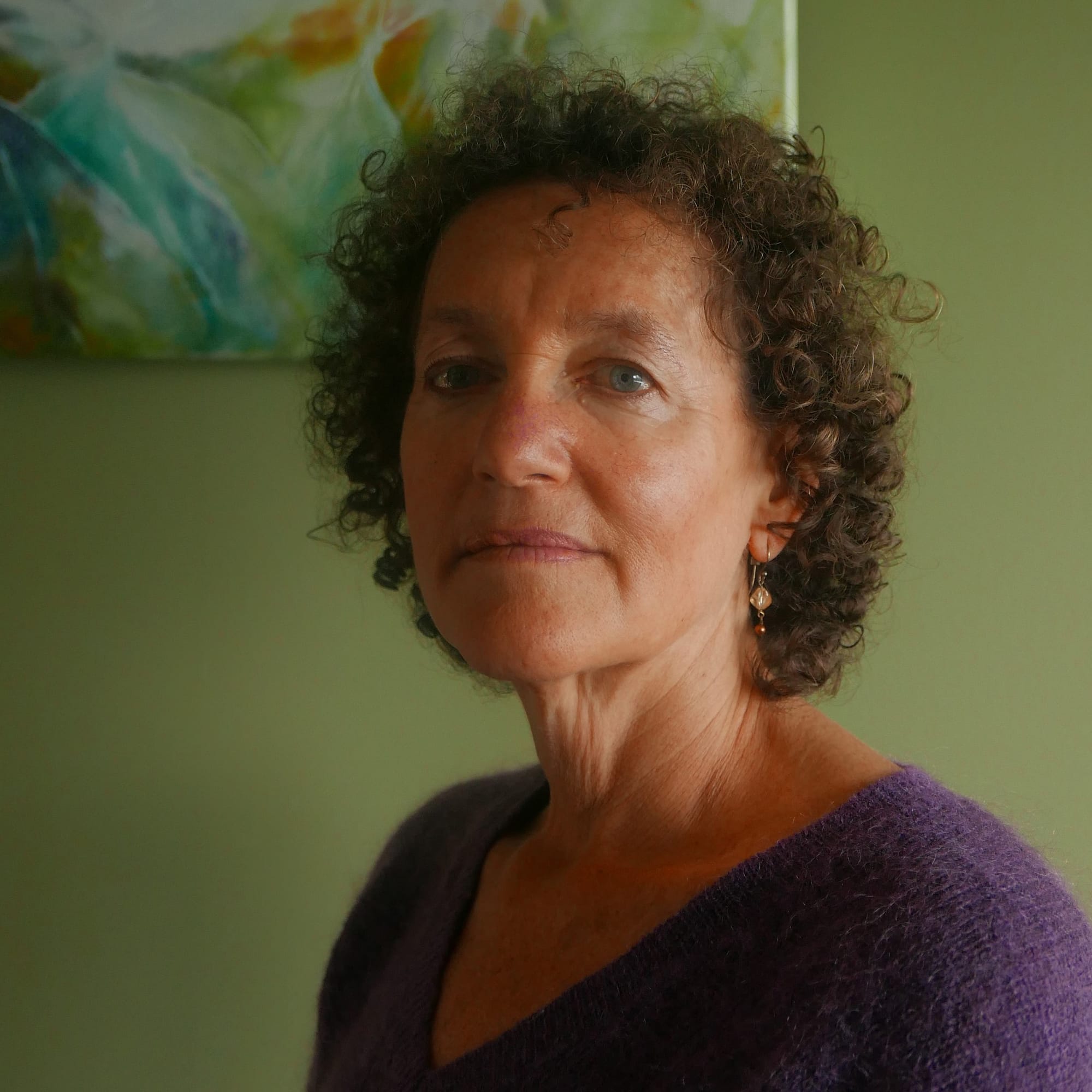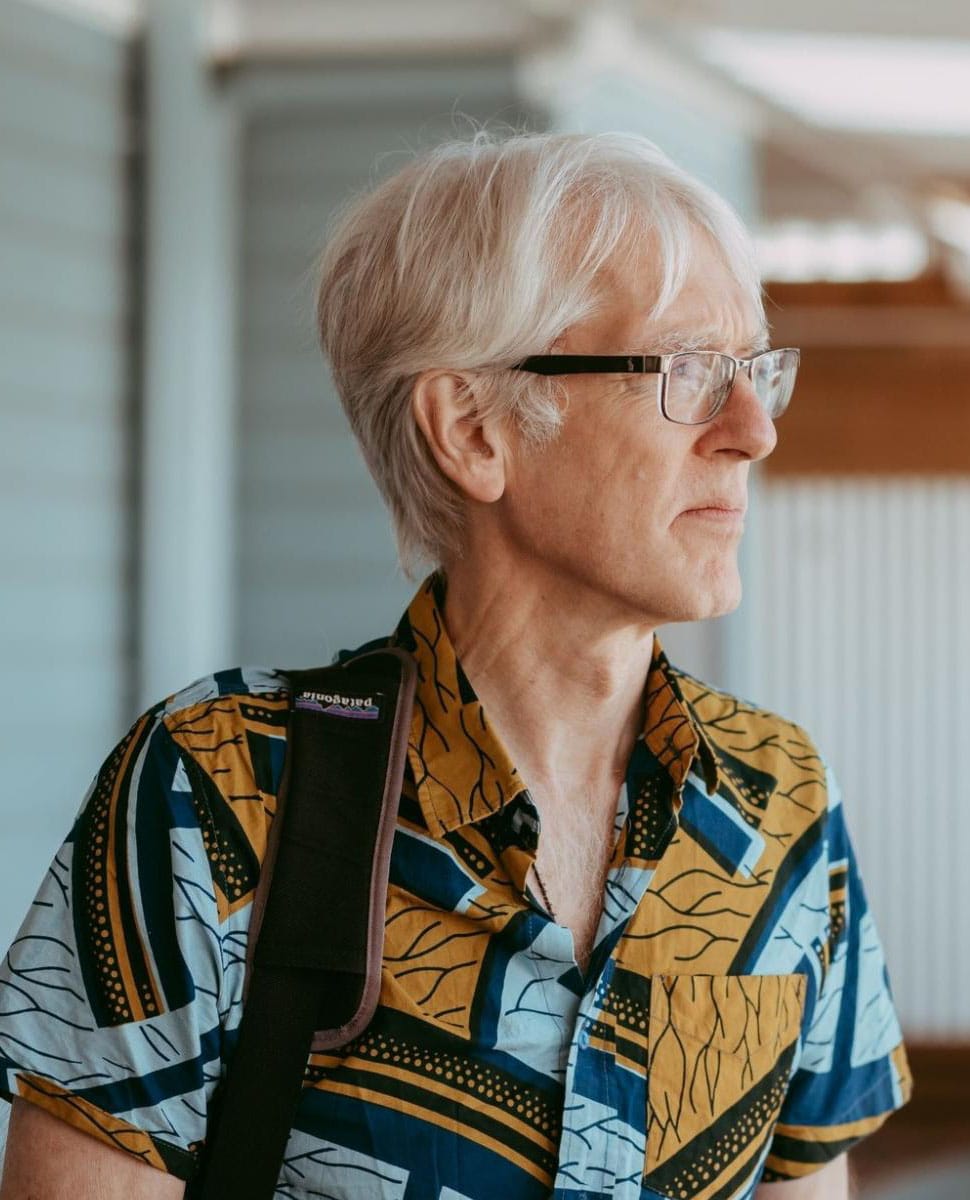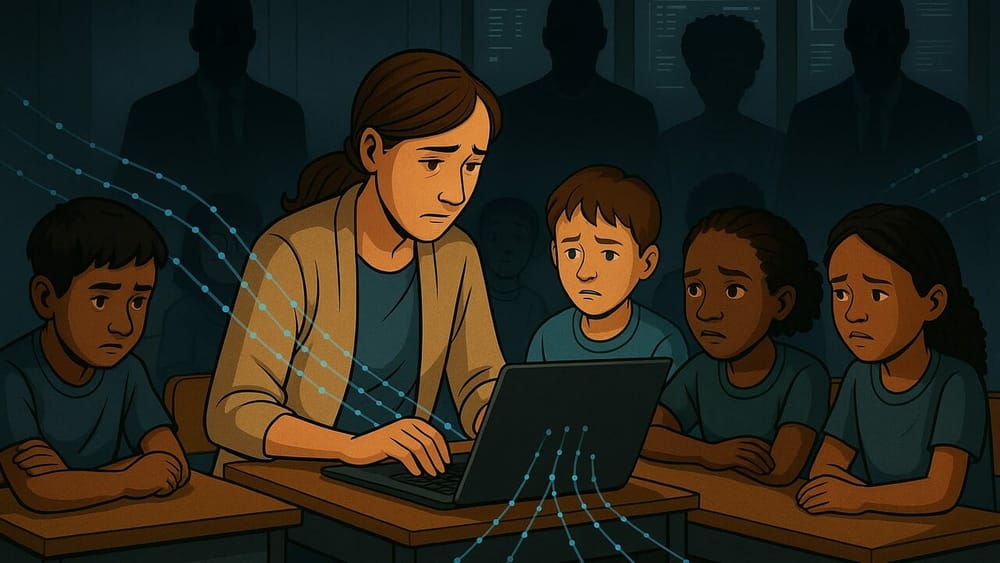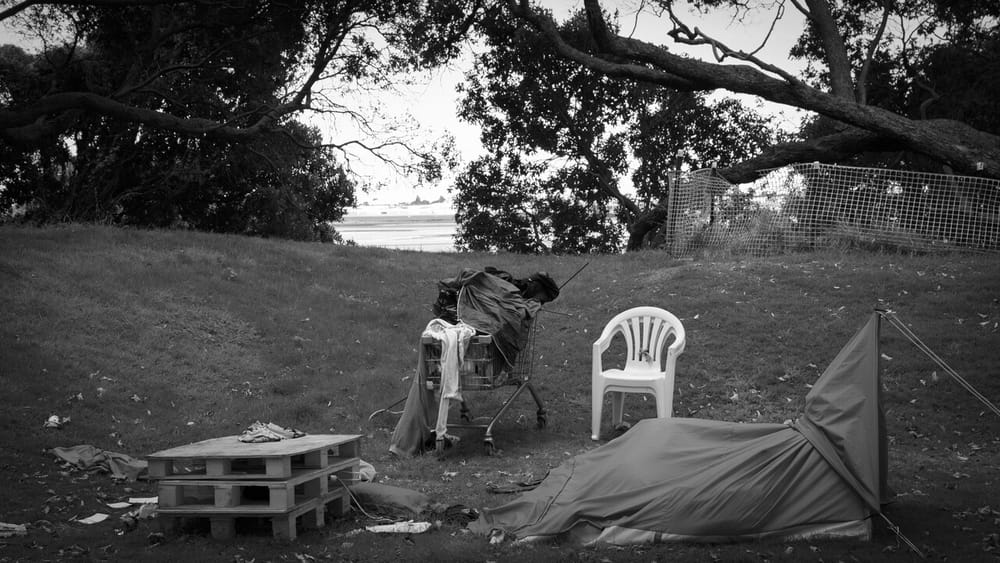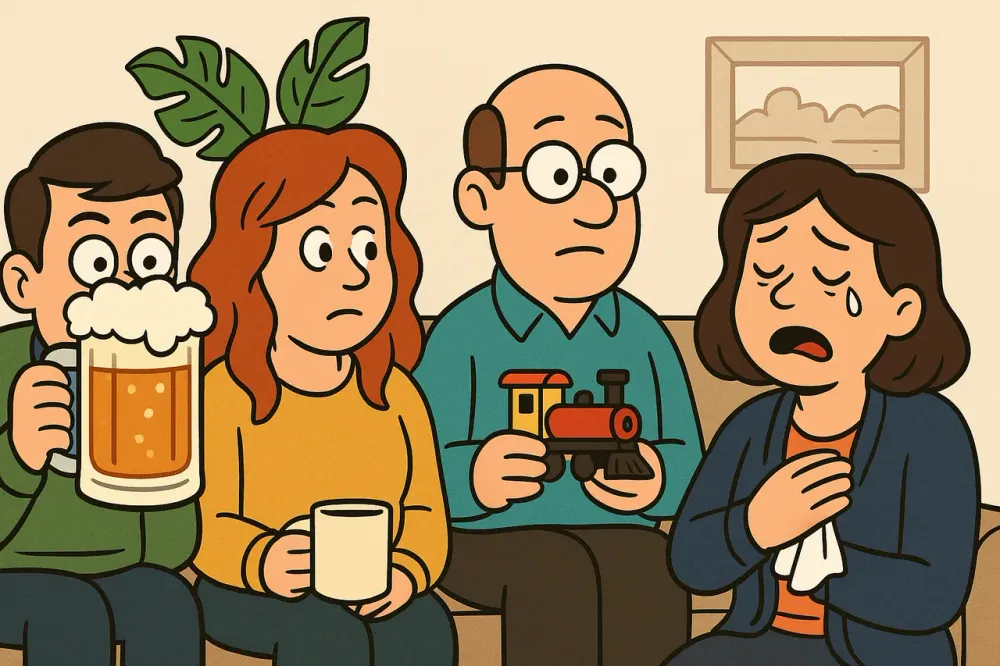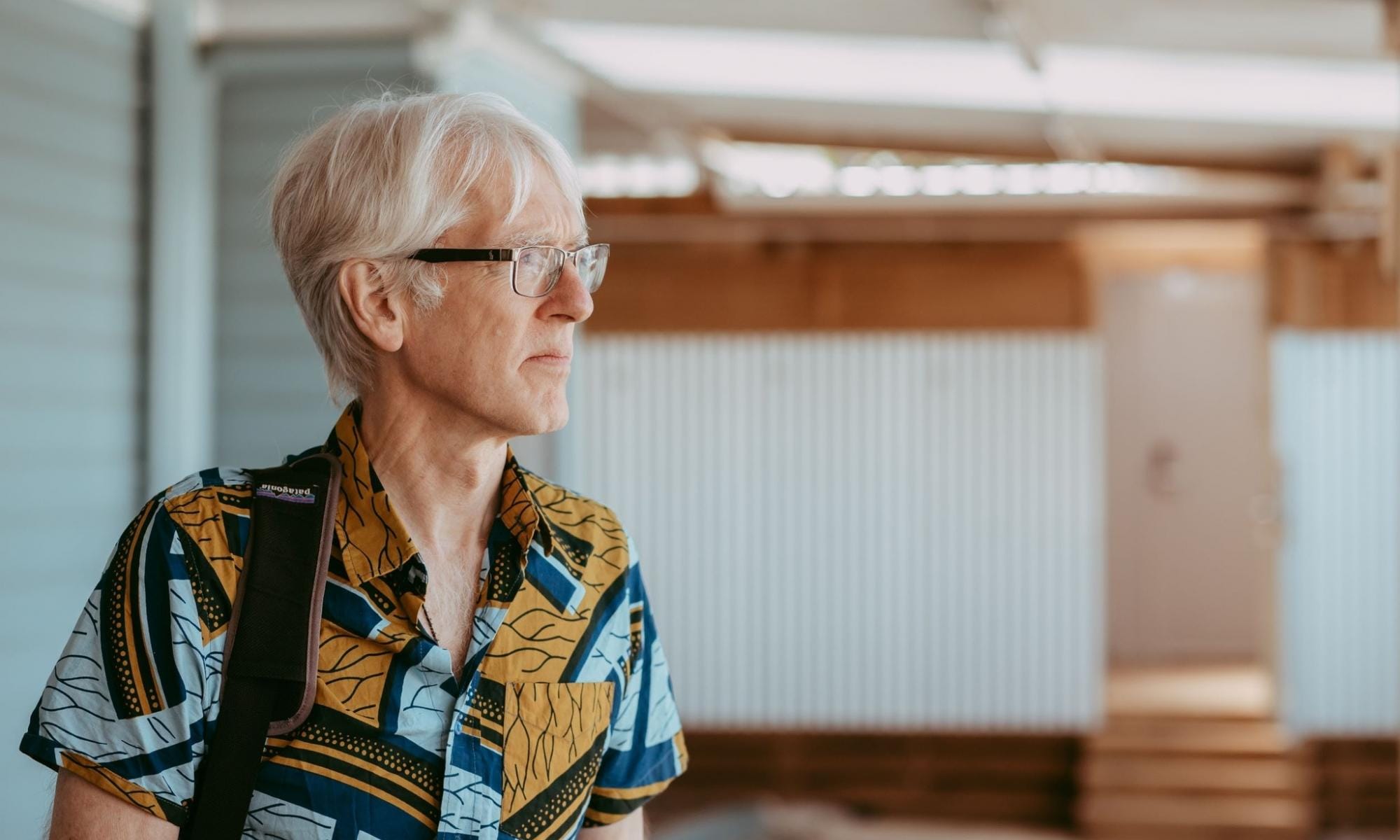
What a to-do list! New Zealand’s Chief Human Rights Commissioner advocates, educates, encourages harmonious relations, monitors, evaluates, advises, calls power to account, reports on and leads the Te Kāhui Tika Tangata Human Rights Commission’s work on roughly twenty issues of discrimination, dispute, difference or division. From race to housing, each issue is both fraught and essential. And then there’s governance, administration, workplace, funding and media.
If the commissioner’s position has ever been a staid one, it is not staid now. In the fourth year of his five-year term, Paul Hunt has made human rights into headline news. He has framed critical issues as matters of human rights, elevating the voices of people whose government has failed in its obligations. Calling colonisation “the major issue of our time”, Hunt also brings universal human rights into dialogue with Te Tiriti o Waitangi (Treaty of Waitangi) and te ao Māori (the Māori world). The strengths of Indigenous knowledge complement the inherent weaknesses of a 75-year-old human rights framework.
In all these ways, Hunt has brought human rights to life (warts and all) and set them in the harsh spotlight of this messy political moment. Paul Hunt joined The Lovepost on an icy winter afternoon to speak about the living role of human rights, and the life of a chief commissioner.
Kia ora Paul Hunt, Chief Human Rights Commissioner of New Zealand. Thank you very much for your time. I have so many questions! I'm just going to throw the kitchen sink at you and let's see if you're still standing after an hour. [laughs]
Well, tēnā koe, thank you very much for inviting me.
I'd like to start by asking for your thoughts on a few current human rights issues: housing, health, race, and decolonisation. You have called our emergency housing system a violation of the human right to shelter. The Waitangi Tribunal says that Aotearoa has breached its Treaty obligations in this respect. What changes when you frame a familiar issue as an issue of human rights?
One of the integral, significant changes in framing something as a human right is that it elevates the importance of the issue. It also places obligations on local government, central government and on business corporations to undertake various things. It's not just a matter of choice. It's not just a matter of humanitarianism. It's not just a matter of social justice. It's a matter of obligation.
And that obligation is then fortified by appropriate mechanisms of accountability. Not necessarily judicial accountability; that's the accountability of last resort. There are lots of other forms of accountability which can underpin and buttress human rights responsibilities. For instance, the organisation of which I'm the Chief Human Rights Commissioner, that is an accountability mechanism. Newspapers, the media—if it's free and independent—is an accountability mechanism. General elections are an accountability mechanism. Parliament is an accountability mechanism, and so on. But we do need effective, independent, accessible forms of accountability in relation to promises that local governments, central government and corporations have made.
You are also a former United Nations Special Rapporteur on the right to the highest attainable standard of health. “Highest attainable” straddles the disparity between countries as well as each country’s dilemma of universal access versus the cost of treatments. How far does our right extend: how much healthcare do we have a right to receive?
The human rights in international law are worded in the language of the 1950s, and it remains exceedingly important. But these days, the language commonly used is a bit different. So it's now usually referred to as the right to healthcare and the right to health protection; that is, medical care and also public health. Sometimes it's also referred to as the right to an effective, accessible, responsive, equitable health system. So that right that you correctly mentioned at the outset is what's in the treaties, but it now tends to be framed in a slightly different language.
Can I just give one example of how I think [the different language] serves an important purpose? When you look at most countries, if not all countries, in the health system usually there is an emphasis on medical care. Of course, that is exceedingly important. Usually, however, public health—the health of populations—is neglected. When you look at how a budget is split up, how the budget cake is divided into slices, usually the public health arrangements are given far less attention than the medical care of doctors and nurses and medicines and so forth.
In my humble opinion, that's wrong. There needs to be a much better balance between the resources for medical care and resources for public health. If we get public health right, we'll need fewer medicines. We'll need fewer hospitals and hospital beds. So I think at the moment, in most countries, we haven't got this balance right. And that's something that is exposed by the right to healthcare, and attention to the right to health protection.
I just want to make one general point, if I may. Look, the human rights are not magic solutions to anything. They do provide a sort of a compass. They do provide a chart or map but they don't provide magic solutions.
And also, crucially, human rights are sites of struggle. You know, framing something as a human right doesn't solve the matter. It's usually a leader for struggle. And I've just mentioned one of them, the right to health, if I could use that shorthand. If it encompasses, as it does, healthcare and public health, well, then there's a struggle about how much of the resources are given to healthcare and how much to public health. Usually, public health is particularly powerful and important for disadvantaged groups. It's not a coincidence that public health tends to get neglected. So there you have a site of struggle.
If I can give another example, in 1948, one of the greatest documents of the 20th century was adopted by the [United Nations] General Assembly. It was the Universal Declaration of Human Rights. And in that Universal Declaration of Human Rights, there's a whole spectrum of human rights. Civil rights, political rights, workers' rights, social rights, cultural rights, equality, and non-discrimination. And since then, some other rights have been added, like various environmental rights and Indigenous peoples' rights. So my point is that the understanding of human rights is very wide. But often, in many countries, there are some rights that are privileged, that are favoured, that are given more attention. So that's a site of struggle. If you're reasonably well off, and you're middle class, and you've got access to social capital as well as financial capital, then you can usually get by with schooling and food and healthcare and so forth.
But if you're living in poverty, if you're a disadvantaged group, then these other social rights—the social rights such as the right to a decent home, the right to adequate healthcare, the right to good health protection, the right to education—they are more important. They are really a matter of life and death for you. So the point I'm trying to convey is that when we understand human rights, there's a struggle going on about which rights are prioritised. And often, it's the civil and political rights that are prioritised. And those rights that are particularly important to neglected communities are often neglected.
So we have neglected rights for neglected communities. That is another example of how human rights are a site of struggle. In the New Zealand Human Rights Commission, to go back to your question, we had this inquiry on the right to a decent home in Aotearoa. And what we were trying to do was to provide a tool for rights holders to use in their campaigns around improving their rental property or improving access to private housing. We were trying to provide them with a tool that communities and individuals can use in their dealings with those in power or authority.
“Human rights are sites of struggle.” That restates the work in an extremely helpful way: the shortfall is not just failure. It delineates the struggle, for which you provide more tools. Thank you for putting it together that way.
Rights also bring you into spaces of political struggle. The ACT Party says that the Commission's involvement with these issues constitutes a “hard-left agenda”. Their platform says that ACT would abolish the Human Rights Commission. They would permit only individual one-off complaints. Is there any way to raise rights above the political fray of left and right, or is that just part of the struggle?
I think that's probably part of the struggle. You see, one of the crucial features of human rights is that there's no hierarchy about them. Civil and political rights are not more important than social rights. So what we are trying to do in the New Zealand Human Rights Commission is to keep that promise of a non-hierarchical approach to human rights. Freedom of speech is desperately important. Freedom of information is desperately important. But at the same time as advancing those human rights, there is a legal responsibility to advance the right to a decent home, the right to healthcare, the right to health protection, and so on. So, in the Human Rights Commission, frankly, we're just doing what the statute of the Human Rights Act tells us to do, which is to advance all human rights for everyone. That's what we're trying to do. We're trying to ensure that promises made by successive governments in Aotearoa are kept. And does it become political? Yes, it does. Does it become party political? Yes, it does.
But my job as the Chief Human Rights Commissioner is to go back to the signed agreements and promises that successive New Zealand governments have made. That's my responsibility. And, of course, it has a political dimension to it. What I have to avoid is party-political endeavour. I resolutely struggle to not be party-political, but are there political dimensions to the work of human rights? Of course there are, because politics is about the exercise and distribution of power. And actually, human rights are about the exercise and distribution of power.
So, there are political dimensions to these things. Equality, misogyny, antisemitism: these are about the exercise of power, in the case of antisemitism and misogyny, in a terrible way. Those are political issues, so, of course, there are political dimensions. But we try to honour and ensure that the promises made to everyone in Aotearoa are taken seriously. And does that get us in political trouble sometimes? Yes, it does. But I work really hard not to be party-political.
You have written about the need to involve—not just speak to, but involve—the people who are or who feel left behind. The people who are devoid of power. Yet when you spoke with some of the parliament protesters who were not advocating violence, some folks thought that was an error of judgement. Is this redistribution of power, or this challenge to the distribution of power, always so uncomfortable?
I think not always, but often. And you know, that decision I made to speak to the non-violent protesters at Parliament in [March of last year]—what drove me to reach out to them, I’d just like to explain.
First of all, they approached me. They said, ‘We are concerned about human rights, will you please talk to us?’ Now, we made inquiries to check that they were serious. And we made inquiries and came to the view that they were serious about this. It wasn't frivolous. It wasn't bogus. So look, if a member of the public says—in a time of national crisis, they say, ‘There are human rights dimensions to what we're getting at here. Chief Human Rights Commissioner, can we talk with you?’ I think it would be absurd for me to say no.
But when meeting with them, there were some ground rules that we insisted on and we agreed. And I have to say the ground rules were complied with by all parties. The discussion was civil. We disagreed. At every meeting, I began, or very early on in the discussion I would say, ‘Misogyny is unacceptable, antisemitism is unacceptable, violence is unacceptable, racism is unacceptable. And those protesters engaging in those articulations need to stop doing that.’ So it was an opportunity for me to challenge the protesters to respect the human rights of others. And to raise concerns.
But also, the protesters had some points that needed to be heard. Did I agree with them all? Absolutely not. But they had concerns, and they were human rights concerns. And I think it would have been churlish for me to say no.
And further to their concerns, I know that the Commission had established a test, a human rights and Te Tiriti balancing test for the exceptional policies that the government implemented to manage COVID. What did you find? That test seems to respond to the questions that some of those protesters came to ask.
Yes. So there was actually [laughs], I don't know if this is too detailed or too geeky. But usually in these difficult human rights discussions, usually, a right is put forward like freedom of speech or the right to assemble, that is to hold a public meeting. And then there are limitations imposed on those rights. That's what the New Zealand Bill of Rights Act says. That's what the International Covenant on Civil and Political Rights says, there are these rights but they may be limited in some circumstances. And that's usually how it's phrased. Now, I took the view and we, the Human Rights Commission, took the view that that's entirely appropriate but there's a better way of framing it. It's very negative. I thought that was unhelpful and also misleading. So instead, what we did was talk about how human rights have to be balanced.
Rather than say that the right to travel around the country freely, the right to assemble freely, [or] the right to work has to be balanced with the right to healthcare and the right to health protection and the right to life, which [were] significant considerations as a result of COVID. It becomes a balancing act between competing rights, all of the rights being really important. There's not one right that's superior, and then it may be restricted by some violator—it's not that any longer. It's in a society that has competing human rights. We know that there are competing human rights, We know that freedom of access to information has to be balanced with the right to confidentiality. So the concept of a balance is integral to human rights.
So we were saying in the context of COVID, ‘Ah, we're here in the COVID world. We, the society, we have a balance to strike. We have a balance to strike between, on the one hand, the right to life, because people were dying of COVID. The right to life, healthcare and health protection has to be balanced with the right to go to work, which was being closed down. The right to assemble, which was being closed down. The right to travel freely throughout the country, which was being closed down. You have to balance those rights.’ That was the sort of geeky conceptual theoretical stuff that was going on in the Human Rights Commission to try and find appropriate framings and ways of dealing with the enormous human rights challenge that COVID demonstrated.
That's what I said to the protesters. I said, ‘Look, yes, you do have limitations on your right to work.’ There was no question about that. There were limitations on our right to work. But then I said, ‘But you have to balance that right with the right to healthcare and health protection, and the right to life.’
And one of the complexities was that every week, we had to go back to the balance. Because the facts change, the data changed. More people were dying, or fewer people were dying. There were more people with COVID or fewer people with COVID. So it was constantly changing: the balance isn't set once. Circumstances changed when more data [became] available. So every week, we had to go back to this balancing test. You had to consider rationality, reason, data, practice, who was dying, how many were dying. It had to be a rational decision, but also it had to be fair, it had to be reasonable, it had to be transparent, it had to be non-discriminatory.
I appreciate that your balancing approach begins with an assumption of some goodwill, rather than assuming the enmity of those who imposed the limitations. That assumption of government goodwill might not have been shared by all of the protestors, but I like it as an operating system.
I also want to ask about Posie Parker. I understand that you, personally, went to the Wellington demonstration for trans people's rights—which are, of course, human rights. You also wrote that Posie Parker should have been allowed to speak within limits. Where are the limits? How do we delineate free speech from harmful or hateful speech?
Really good question. And it's hard, you know, it's hard. Again, either you can frame it as one human right which can be lawfully limited . . . or you can see it as competing rights—on the one hand freedom of expression, which has to be balanced with the rights to be secure, to be treated with equality, to be treated without discrimination, and to be safe. So again, it was back to that balancing act—well, that's the way I prefer to put it—between competing human rights. And that's what I sought to do. If speech advocates violence, then that's not acceptable. The balance there is clear: it's an imbalance. If there's harassment and intimidation, then equally, one's going to have to give extremely serious consideration [to] striking an appropriate balance against freedom of speech.
These are difficult choices and difficult balances, difficult decisions. And human rights don't provide nice and neat answers to them. I think it's disingenuous to suggest that human rights provide a nice little blueprint or formula: it doesn't. It's messy. And you know, there are good people who will come to different decisions. And you have to be respectful and transparent and listen.
One of the considerations that I always have in my mind when struggling with matters of freedom of speech is, ‘Whose voice is being heard?’ And I'm keen for disadvantaged people, marginal people and vulnerable people to be heard. And their interests have to be kept in mind, and they have to feel suitably safe.
It's not just people like me with all my advantages, right? All my privileges of my gender and my class, and my ethnicity and my sexuality. One has to think about the disadvantaged groups, whoever they might be. And are they both getting a platform to speak without being shouted down, and are they safe? Are they safe from the speech of others, which borders on violence and harassment, and intimidation? So what am I saying? I tried to think of disadvantaged groups. And I know that it's difficult for someone like me to do that. It can be quite dangerous. There's a danger of being patronising and so forth. I get all that.
As Chief Human Rights Commissioner, what we've sought to do time and time again is to give a platform to people who are not heard. So, for instance, in our national inquiry on the right to a decent home, we went out of our way to speak to homeless people, to speak to people on the street, to speak to people who had no significant security of tenure. We tried to give them a platform so they could be heard. They could say whatever they wanted to say. We thought that was important and that's what we endeavour to do.
Just last week, a group of us went to the East Cape. We were invited by communities to go there to listen to them [regarding] their lives post-cyclone Gabrielle. They wanted us to see what had happened, and listen to them. So that's what we did. We were, I felt, deeply privileged to be invited to sit with them on marae, and to stand on a beach which was completely ruined by forestry slash, and to talk about what had happened. So what we were trying to do last week was to try and listen to people who are not always heard. And I think that's an important human rights role.
In each of these stories, I hear you trying to ground the rights theory in the living experience of those whose voices need to be amplified. In another facet of that mission, I've heard you say and I've read in your writing that rights need to engage with Indigenous collectivity and values. Rights need to listen there, too. We're going to do a story about the Commission's work to become a Te Tiriti partner. But personally, how do your own guiding principles change when you bring rights into dialogue with Te Tiriti?
Yeah, well, really good question. Underpinning our societies is always a set of values. Often they're implicit values. But there is always a set of values in any process, in any institution, in a society there is a set of values. Now, human rights embody a set of values, and those values (to make things complicated) evolve over time. So one has to keep going back to the values and keep going back to the human rights.
Now, I think that in contemporary human rights, the prevailing orthodoxy of human rights tends to be individualistic. It tends to be about entitlement, and it tends to be mono-generational [laughs]. I think I could go on. But those three features, I think, need to be addressed. I think they're out of step. They're out of date. I think we have to refresh human rights for our time and our place, without selling out—without giving them away. Refreshing them and rekindling them and affirming them. We need to revisit human rights, so they're not just about I and me, they're about we and us.
Human rights are not just about entitlements. They're also about us having responsibilities. In the human rights orthodoxy is [the notion] that individuals have rights, and the responsibilities are placed on the government. That's the classic paradigm. We have entitlements, the government has responsibilities. And of course, that's right.
But also we have responsibilities. We have human rights responsibilities. As individuals, we have human rights responsibilities to our communities. We have human rights responsibilities not to be antisemitic, not to be misogynist, not to be racist, not to be Islamophobic, not to be homophobic, etc. So human rights are not just about entitlements, they're also about responsibilities. I've tried to bring that out.
And then the third thing that I mentioned—I could mention many more, but a third thing that I mentioned was that human rights tend to be sort of mono-generational. They're thinking about today. But we know from climate justice, we know from climate change, we've got to think intergenerationally.
So those are three features . . . which I think contemporary understandings of human rights are rather weak on. Now, where is the strength in those preoccupations? In Te Tiriti. In te ao Māori. I'm not tangata whenua, [so] I leave others to teach me about te ao Māori, but my understanding is that in te ao Māori and in Te Tiriti, there is a deep sense of entitlement but responsibility as well. There's this conception of responsibility. And there is this conception of intergenerationality. You have to think of the future. There in Te Tiriti and te ao Māori, you have to think of collectors, not just yourself.
I think that there are some concepts and features of human rights that were evident back in 1948, and we've lost sight of them. We need to reclaim them. Te ao Māori and Te Tiriti o Waitangi can help us do that. I have to tread very cautiously because I'm not tangata whenua and I'm not an expert on te ao Māori, I just learn as best I can. But I think we've got an immense amount to learn from te ao Māori and from Te Tiriti. And there's nothing to fear—on the contrary. Pākehā will benefit from the embrace of te ao Māori and Te Tiriti.
Wow, you have stopped me in my tracks. I have thought of the need, but not the benefit of placing them in relation that way. I have not thought of bringing such complementary weaknesses and strengths together. Thank you for that.
For those of us who advocate for the rights of others online or in person, the personal cost of political participation is rising fast. Disinformation, mistrust, racism, and personal threat are pervasive now. Does your office have a program of work aimed at encouraging or making participation in this year’s election any safer?
Yeah. So are we doing enough? Probably not. I don't want to be defensive about it; I'll just be honest. We are routinely trying to address dreadful speech; intimidating, violent, awful stuff. And we have various ways of challenging that. We can't challenge all of it—it's just too big. It's too current. But we try to challenge some specific incidents. And we argue for constructive… I'm looking at the briefing here that we wrote and published just a little while ago. Yeah, constructive spaces where peace can be made.
I’m with you: let’s have some more of those spaces. [laughs]
That’s what we’re calling for. You know, back in May 2023, we published a small briefing called The communication revolution, human rights and Te Tiriti o Waitangi. here's [been] this communication revolution going on in the last 20 or 30 years and it's gathering pace. We've got to look at it as a whole. We’ve got to be clear about what our values are. And we said that the important values embodied in human rights and in Te Tiriti, those values must be the foundation and the framework for how we respond to this communication revolution. On the basis of that framework and foundation, we're now embarking on a particular initiative, which I hope you'll be reading about in a couple of weeks' time, where we're seeking to apply that framework and apply that foundation to social media corporations. It's a pilot, meaning somewhat experimental; this is new territory. But . . . having set out the values, the human rights, Te Tiriti, now we need to have a go with colleagues and allies to apply them in a constructive spirit to social media corporations. So the briefing, we've done. The pending initiative, I hope it will be launched in the next week or two.
But every day, we're getting complaints from people who've been hurt by dreadful language, and then we engage with them as best we can and support them as best we can. Do we do enough? No, we don't. Do we deal with everything? Absolutely not. But we try to engage constructively and sensibly and humanely in that space.
I wish you the very best with that initiative. You’re in the fourth year of a five-year term, so you've had time to look around. Is there a power that you wish your office had? Is there one power with which you think you could make a difference?
Well, there's one particular reform that I've advocated publicly. I think that the Human Rights Commission should be an institution of Parliament. At the moment, the Human Rights Commission is set up by the Human Rights Act as an independent crown entity. Notice the word ‘independent’. However, who pays us? It's the Ministry of Justice. So that isn't good. So I've recommended—don't hold your breath, but I've recommended—that the Human Rights Commission is reconstituted as an officer of Parliament. The Chief Ombudsman, he's an officer of Parliament. Being an officer of Parliament . . . you're a bit more arm's length from the government. And you don't actually go to the government for funds, you go to the Speaker of the House for funds. Whereas I have to go to the Minister of Justice for funds. So it's somewhat better in terms of actual and perceived independence if one is an officer of Parliament. That's one reform. It's not a radical reform, lots of people have recommended it. The United Nations has recommended it. So you know, I'm not disgracefully radical, it's just a small measure that would enhance our independence.
[laughs] Well, there you go. I've thrown the big issues at you and you're still upright. I am really grateful for your time and I wish you the very best in your important work. I look forward to hearing more about the commission’s work as the months go by.Thank you for inviting me and I was very chuffed, I was very pleased to be invited. So thank you very much indeed. [The Lovepost] is a wonderful initiative [and your readers] are far-flung, which is wonderful. And I send my warm greetings to every single one of them.


